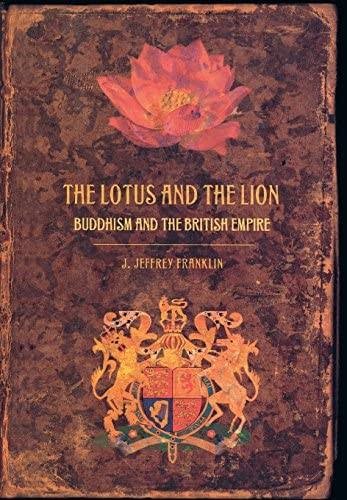
The Lotus and the Lion: Buddhism and the British Empire
By J. Jeffrey Franklin
… the boundary between colonizer and colonized always is dangerously and excitingly permeable
My interest is in the fact that the young Rudyard Kipling’s first exposure to Buddhism was in London, not India or Tibet or Japan; that he wrote the novel Kim for the most part from Rottingdean in Sussex; that most of the textual sources on which he drew were written and published in England, not Asia. My focus is upon the textualized Buddhism fashioned by Englishmen
[which] was, as Max Müller once labeled it, a form of madness, but the madness was not, as he intended, among Buddhists; it was the madness of Westerners confronted with concepts and doctrines so utterly incommensurable with their most cherished ideals that they could not be assimilated.
My analysis begins from the publications of comparative religion starting in the 1850s and 1860s, incorporates the lively dialogue about Buddhism that occurred in the periodical literature soon thereafter, and then focuses on the works of fiction, poetry, religion, and philosophy that emerged especially in the 1870s to the 1890s.